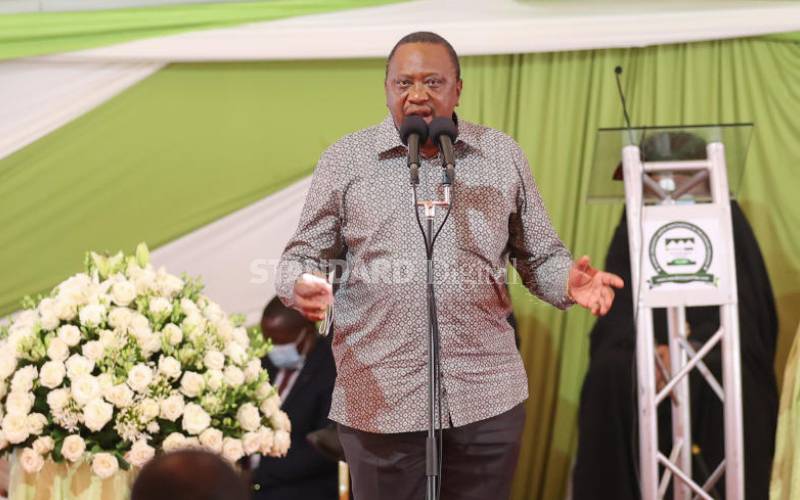×
The Standard e-Paper
Kenya’s Boldest Voice

President Uhuru Kenyatta condoles with mourners at the funeral service of the Late Mama Hannah Atsianzale at Mululu Village in Vihiga County on January 9, 2021.
In 2013, President Uhuru Kenyatta’s speech writer Eric Ng’eno caused indignation when he excoriated a cabal of unaccountable, well-paid civil service men (and women) for undermining the State from within. In a newspaper article, Ng’eno termed them a ‘parallel state’ not keen to get things done but happy to sit by and earn handsome allowances.